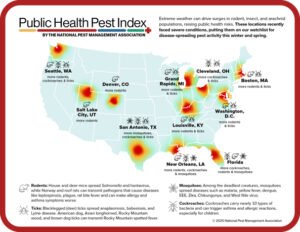In a case of interesting timing, less than two weeks after FDA announced the approval of its Human Foods Program reorganization plan, the OIG announced its own recommendations for FDA improvements stemming from its audit of FDA’s infant formula oversight. The OIG report applies to FDA inspection and recall process improvements, based on the agency’s actions before and during the 2022 infant formula recall and resulting supply crisis.
But many of the recommendations have much wider applicability for the food industry – with some already having been considered in the FDA reorganization and new reporting requirements, and others likely to become a part of the full roll out.
In brief, the OIG found that FDA:
- Lacked, or had inadequate, policies and procedures to identify risks to infant formula and to respond effectively through its complaint, inspection, and recall processes.
- Lacked an organizational structure and assigned responsibilities to handle whistleblower complaints in an efficient, effective manner. (It took more than 15 months to address one whistleblower complaint; and another was not escalated to senior leadership, who were unaware of it for nearly four months.)
- Did not have policies and procedures to establish timeframes for the initiation of critical inspections. (One inspection was not held until 102 days after receipt of a whistleblower complaint.)
- Did not have sufficient policies and procedures on how to initiate an infant formula recall under its FDA-required recall authority.
While each of these focused on infant formula risks, it is easy to see how the lack of policies and procedures, along with various inefficiencies, could be detrimental to consumer health in the event of a foodborne illness contamination and recall of any food.
From its findings, the OIG made nine recommendations, including that the FDA:
- Prioritize the National Consumer Complaint Coordinator’s (NCCC) continuity of operations by cross-training staff on whistleblower policies and procedures and NCCC duties.
- Develop and implement policies and procedures requiring periodic reporting (e.g., monthly) to senior leadership on the status of open whistleblower complaints.
- Implement policies and procedures that facilitate reporting consumer complaints in real time to investigators onsite when an active inspection is occurring at the named facility.
- Strengthen the quality factor checklist (QFC) process (used to assist in identifying issues with consumer complaints) to identify data entry inaccuracies.
- Formalize written policies and procedures that either require the CAERS coordinator to forward all received reports to the NCCC or that they identify the factors that determine which adverse event reports should be forwarded to the NCCC.
- Develop policies and procedures for public health emergencies to identify how and when to conduct mission-critical inspections and ensure they are conducted in a timely manner.
- Design and implement policies and procedures specific to the use of the FDA-required infant formula recall authority.
- Amend the language on the CAERS adverse event report form to emphasize to the public the importance of including the lot number.
- Continue to seek legislative authority to require infant formula manufacturers to notify, and provide the bacterial isolate to, FDA whenever a product sample is positive for Cronobacter or Salmonella, even if not distributed, and update its databases.
FDA concurred with all the recommendations, while responding that it had already taken a number of actions for improvement, including:
- CFSAN’s Office of Compliance developed a process to track, evaluate, follow up, and notify compliance leadership of regulatory misconduct complaints, including whistleblower complaints.
- For all infant formula-related events, including whistleblower complaints, CFSAN developed a leadership notification memorandum, identifying which events will be elevated to the highest levels of FDA, who will receive the notifications, which office will send them, and what they will include.
- For consumer complaints, FDA is working on IT improvements to make its currently manual process a systematic one for compiling and sharing compliant data across FDA to help inspection preparation.
- CFSAN and ORA have created elevation distribution lists, SOPs, and mechanisms for emerging public health issues to be shared across FDA centers.
- In its FY 2024 budget request, FDA requested the authority to require infant formula manufacturers to notify FDA of any product that tests positive for pathogen contamination, regardless of the disposition of that product. Additionally, Cronobacter has been elevated to a nationally notifiable disease in infants, decided on a state-by-state basis, in an action supported by FDA and CDC.
It also is important that manufacturers of all critical foods be aware of the Food and Drug Omnibus Reform Act of 2022 (FDORA), section 424(b) of the FD&C Act, which includes the requirement that all critical foods manufacturers develop, maintain, and implement a redundancy risk management plan. Having issued a fact sheet in late 2023 on the new requirements, the agency is also in the process of drafting guidance.
Essentially, a redundancy risk management plan identifies and evaluates risks to the supply of the food for each establishment in which the food is manufactured. The plan may be applied to the supply of one or more critical foods, or food categories that are manufactured in the same establishment, along with mechanisms by which the manufacturer would mitigate the impacts of a supply disruption (e.g., alternative production sites or suppliers, stockpiling of inventory, etc.). The plan is subject to FDA inspection.
As TAG continually recommends, it is essential that food businesses stay attuned to regulatory action regardless of the particular segment to which it is addressed. This is because regulation – particularly that related to foodborne illness mitigation – frequently expands in some form beyond a specific segment to encompass other segments or the entire industry.
To that end, TAG provides weekly updates of industry regulation, science, and best practices to keep you informed. Subscribe here if you don’t currently receive these updates or give us a call for food safety consulting or other assistance.





